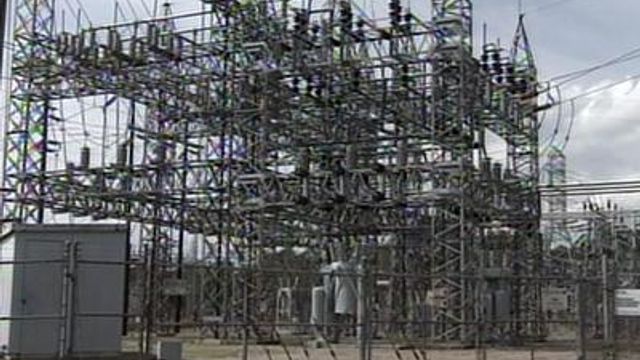Local News
Rocky Mount to see utilities rate increase
The 4 percent increase is effective Feb. 1 and will cover higher operating costs and debt to Progress Energy for building power infrastructure in the area years ago.
Posted — UpdatedROCKY MOUNT, N.C. — Some utility customers in Rocky Mount and other parts of Central and Eastern North Carolina will begin paying more for electricity next month when rates increase.
Last year, the board of directors for the North Carolina Eastern Municipal Power Agency, which owns interests in five power units in the eastern part of the state, approved a 4 percent rate increase for its customers in 32 cities and towns, including Clayton, Smithfield, Selma, Wilson, Wake Forest and Louisburg.
The increase is effective Feb. 1 and will cover higher operating costs and debt to Progress Energy for building power infrastructure in the area years ago.
The increase, however, has not come without a fight.
Ealier this week, leaders in Rocky Mount, which has bills 20 percent higher than the Triangle, passed a resolution urging the board to delay the hike until July and look for other ways to cut costs.
"Rates are increasing, prices are increasing, but people's salaries are not increasing," said City Council member Andre Knight, who introduced the resolution.
Delaying the increase, however, would not be fiscally responsible, according to Arthur Hubert, the board's interim chief executive officer.
Hubert said Wednesday that the group must increase rates now to cover required costs. Not doing so could mean higher rates in the future. State law also requires the hike since the North Carolina Utilities Commission has already approved it, he said.
But Hubert said the group is looking into other ways to save money, and pushing energy efficiency.
"There are ways to work with a consumer to help that consumer use less electricity," he said.
Still, Knight said he believes it is time to get other elected officials involved and get to the root of the problem. He is worried the bills will help drive the next financial crisis.
"Maybe looking at how we can restructure the debt or possibly even asking them for a bailout." Knight said.
• Credits
Copyright 2024 by Capitol Broadcasting Company. All rights reserved. This material may not be published, broadcast, rewritten or redistributed.






